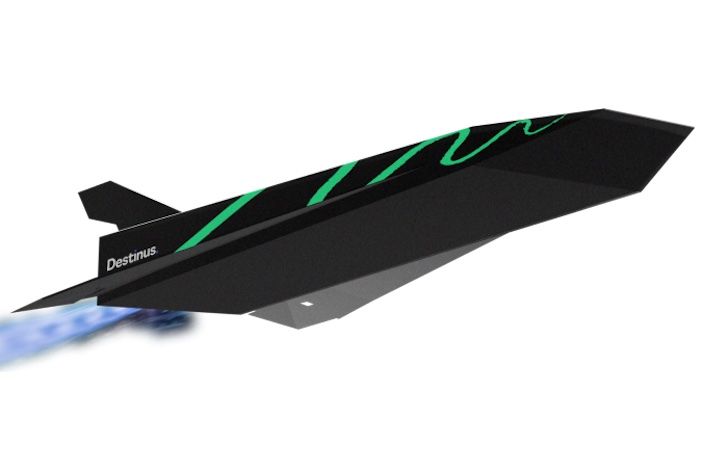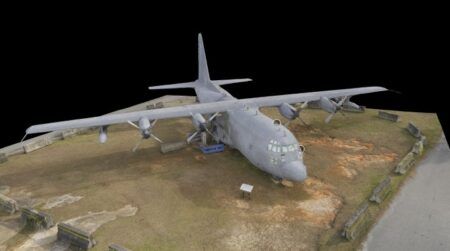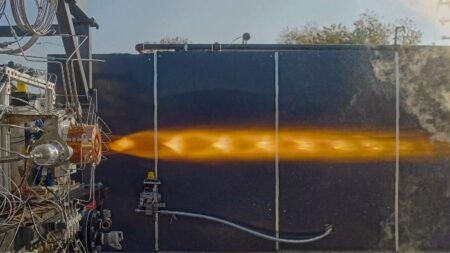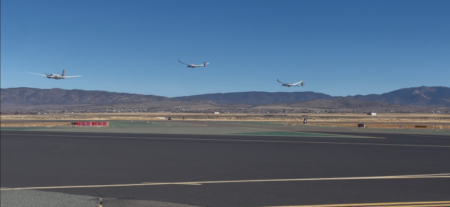Switzerland-based startup Destinus is ramping up the test and development program for its cargo-carrying hypersonic aircraft after raising US$29 million in funding.
Destinus plans to transport cargo between continents in less than two hours using what it calls hyperplanes, rocket-powered aircraft that will take-off and land horizontally using a hydrogen-fed airbreathing jet engine. Once a certain altitude and speed is reached, the hyperplane will switch to a cryogenic hydrogen rocket engine and accelerate to hypersonic velocity of more than Mach 5.
Destinus was founded in March last year and employs 50 engineers, with offices and facilities in Munich, Madrid, and Toulouse as well as Canton Vaud, Switzerland.
Last November the company flew its first prototype, which is called Jungfrau, for five minutes at an airport near Munich at subsonic speeds to assess its performance and aerodynamics during take-off and landing. Jungfrau was designed, built, and tested in four months and is now being used as a testbed for autonomous technologies, said Destinus.
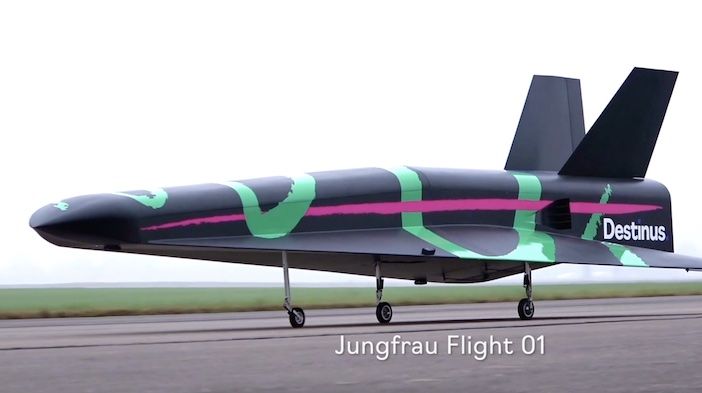
The company plans to grow to up to 100 people this year to help carry out its R&D and flight test program. The next in a series of prototypes, which will be the “size of a bus” it said, will fly early this year
The US$29 million (26.8 million Swiss francs) has been invested by venture funds and family offices from including Conny and Co, Quiet Capital, One Way Ventures, Liquid2 Ventures, Cathexis Ventures, ACE & Company,
Mikhail Kokorich, founder and CEO of Destinus said, “We are excited about the broad support of our company. We plan to use the funding to continue the development of our hydrogen airbreathing and rocket engines and test the first supersonic flights powered by hydrogen engines in the next 12-18 months.
“We have already made significant progress and have designed and filed patents for the subsystems, such as a hydrogen active cooling system, enabling a highly reusable hyperplane flying at almost the speed of a rocket.”
Destinus’ chairman of the advisory board, a former minister of economics and vice- chancellor of Germany, Philipp Rösler said, “It is breath taking to see a future in which travel anywhere in the world in 1-2 hours will be available. Most importantly, the hyperplane under development will use liquid hydrogen to fuel its engines. That gives the great opportunity to fly fast and at the same time be carbon neutral. The only emission of such engines is water. I am excited that companies like Destinus will be able to provide European leadership in the aerospace sector.”


